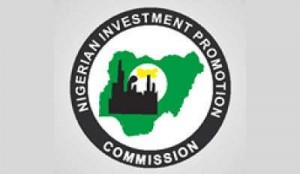The Nigeria Investment Promotion Commission (NIPC), says the country’s Foreign Direct Investments (FDIs) decreased of 21.26% to 3.503 billion dollars in 2017 from 4.449 billion dollars in 2016.
Mr Emeka Offor, the Director, Strategic Communication, NIPC who said this in an interview with the News Agency of Nigeria (NAN) in Abuja attributed the decrease to insecurity and poor access to Forex.
According to him, the global trends revealed an economic slowdown implying fewer capital and in turn low FDIs.
According to Offor, the United Nations Conference on Trade and Development (UNCTAD) World Investment Report (WIR), showed FDIs decreased to 3.503 billion dollars in 2017 from 4.449 billion dollars recorded in 2016.

According to the document, the country recorded FDIs worth 4.694 billion dollars in 2014, which is greater than 3.064 billion dollars recorded in 2015.
FDIs reflects the foreign ownership of production facilities and share of the foreign ownership has to be equal to at least 10 per cent of the value of the company.
The investments could be in manufacturing, services, agriculture, or other sectors. It could have originated as green field investment (building something new), as acquisition (buying an existing company) or joint venture (partnership).
FDIs is reported on an annual basis,and runs at about two to three per cent the size of the economy and is measured by its Gross Domestic Product (GDP).
If a country routinely receives FDIs that exceeds five to six per cent of GDP each year, then it is said to have recorded a significant success.
An economist, Mr Chijioke Ekechukwu said that 2016 was a year of recession in Nigeria, adding that investors looked forward to putting their foreign currency investments where the country’s exchange rate was high.
Ekechukwu said that the exchange rate in Nigeria went as high as N560 to a dollar in 2016 which was an opportunity for both Nigerians abroad and foreigners to get good value for their foreign currencies.
“In 2017, the exchange rate stabilised and the Forex market became less attractive and capital inflow reduced for this reason.
“When this happened, Foreign Portfolio Investors started pulling out their funds for more profitable economies where returns were higher.
“New investors also reduced their investments in the later part of 2017,’’ he said.
Ekechukwu said that another reason for reduction in FDIs in 2017 was as a result of increase in insecurity due to kidnapping, bombing and senseless killings in some parts of the country.
The economist also attributed the decrease in FDIs to incessant arrests of people with huge financial inflows by operatives of anti-graft agencies for investigation, prosecution and possible forfeiture of such funds and assets.
He said that the country could increase its FDIs by identifying all indices for measuring countries’ in the Ease of Doing Business.
Ekechukwu advised that issues like property right, taxation, security, corruption, stable economy, freedom of ownership and work on them concurrently should be addressed.
“We have 13 countries in Africa rated higher than Nigeria in the Ease of Doing Business. As the largest economy, we need to work hard to become number one, then the FDIs will seamlessly flow in,’’ he said.













